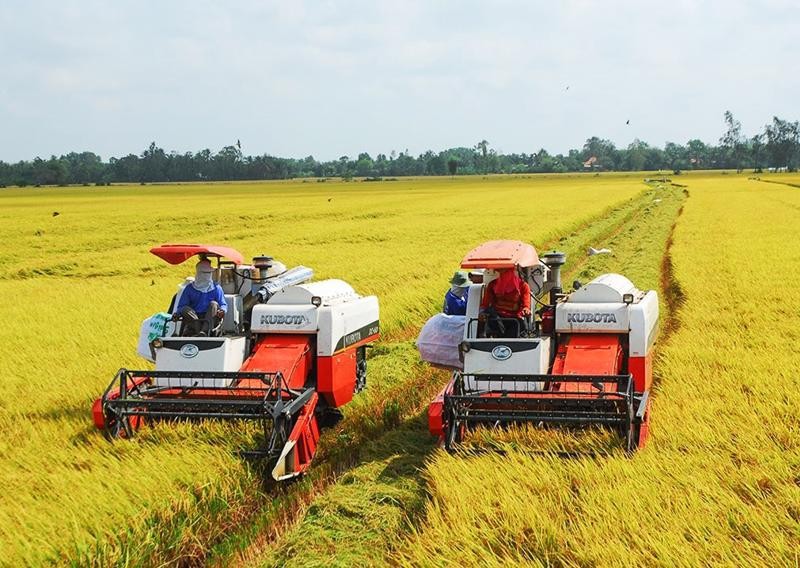 |
| Illustrative image (Photo: vneconomy.vn) |
According to Ton That Son Phong, Deputy Director of the Ministry of Agriculture and Rural Development (MARD)’s management board for agricultural projects, domestic resources are challenging to secure. Therefore, mobilising international funding is crucial. To date, the World Bank (WB) has committed to providing the country with loans and technical support, while the International Rice Research Institute (IRRI) and other organisations have pledged technical assistance.
Based on the WB’s commitment, the ministry, along with 12 provinces and cities in the Mekong Delta and relevant ministries, are working with the bank and local and international experts to finalise the draft of the infrastructure and technical support project for high-quality, low-emission rice cultivation in the region. This draft is expected to be submitted to the Prime Minister for approval in the third quarter of 2024.
The project comprises three components: developing infrastructure for high-quality, low-emission rice value chains; technology development and transfer; and project management. The cost is estimated at 430 million USD, of which 330 million USD is to be covered by the World Bank's loan.
According to Cao Thang Binh, a senior WB expert, Vietnam is one of the top three rice-exporting countries in the world, with one in every six rice eaters eating Vietnamese rice. This initiative marks the first large-scale, sustainable rice production project designed to reduce emissions for both Vietnam and the world. It is a pivotal moment for the Southeast Asian nation to promote and rebrand its rice, demonstrate its responsibility in rice production, and enhance its global standing.
Binh estimated that investing approximately 1 billion USD in the project could yield about 4 billion USD in returns. Additionally, reducing production costs and fertiliser use by approximately 30% represents a significant benefit to the country.
The 1-million-ha high-quality rice project also supports Vietnam’s commitment to achieve net-zero emissions by 2050 and reducing methane emissions by the end of 2030.
Pham Hoang Mai, Director of the Ministry of Planning and Investment’s Department of External Economic Relations, suggested the MARD seek special authorisation from the National Assembly. This would allow the MARD to work as the project’s primary investor, transfer loan funds to localities, and delegate project implementation to local authorities. The WB has also committed to purchasing all carbon credits from the project at a set price (similar to its previous purchase of carbon credits from Vietnam's forestry projects)./.






































